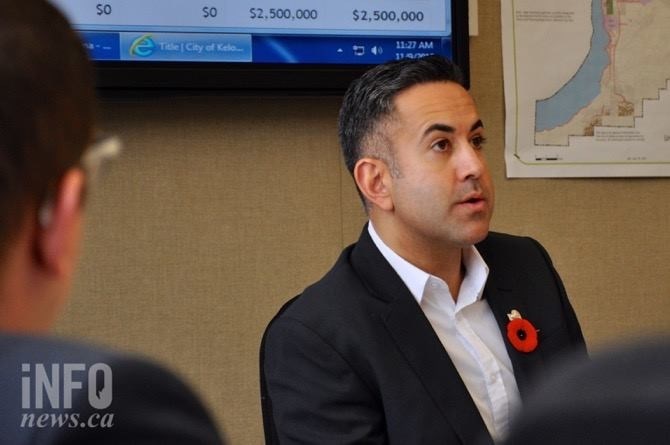
Vancouver Coastal Health is considering offering safe injection in all its main hospitals.
Image Credit: shutterstock
February 28, 2016 - 12:00 PM
LOCAL LEADERS NEED DATA; HAVE OTHER PRIORITIES
KELOWNA - Safe injection and intravenous drug use doesn't make for great dinner conversation. Yesterday we told you why it might be time for Interior communities to have that conversation. Today we examine how it divides opinion even as the Interior Health Authority considers how best to get one going.
Front line social service workers, the ones who deal directly with many addicts, tend to see the faces behind the addiction while business and political leaders look more for law and order. It's still taboo enough to make some people dance around it.
“Health care is not our mandate, that’s more of a federal or provincial thing and from a personal standpoint, it’s not something I’ve looked into,” Kelowna Mayor Colin Basran says. “However, we know people do drugs in our community and with needles becoming an increasing issue, maybe it needs to be looked at. I would like to know from the experts if this is something that would eventually help stop people from doing drugs.”
Basran and council recently made homelessness and attendant street crime a priority by hiring a new homeless coordinator to work with local social service agencies. The safe injection file will likely loom large for them when they start later this spring.
Inn from the Cold executive director Jan Shulz says everything that can be done, should be done to minimize the risks and that includes safe injection. She does, however, expect it to be a tough sell for some locals.
“This town is pretty conservative and I think a lot of people won’t look beyond the surface of this issue," she says.
John Howard Society houses the hard-to-house and executive director Gaelene Askeland supports safe injection without hesitation, but she still thinks it puts the cart before the horse.
“The vast majority of addiction is due to early childhood trauma. Not addressing the trauma is why people get addicted,” Askeland laments. "If we spent more time helping people overcome the trauma, we wouldn’t have the addiction issues we do.”
NOT EVERYONE CONCURS
Despite their front-row seat to overdose and addiction, not all Kelowna’s social service agencies give their unequivocal support to safe injection.
At the city's frontline shelter for men, Kelowna Gospel Mission staff see addiction up close — they’ve had recent overdose deaths amongst their clients — but executive director Randy Benson would not directly endorse safe injection without the blessing of his board and takes a harder line on substance abuse than some organizations.
“Anything that helps decrease the use of illegal drugs is worth looking into,” Benson offers.
NOW Canada executive director Liz Talbot, operating a 20-bed shelter for women, isn’t fully convinced either and thinks a medically supported sobering station, long desired by Kelowna’s social service agencies, might be a better use of scarce resources, especially if one is forced to choose.
“There's never enough money for all of it. I would like to see a needs demand study done on it,” Talbot says. "I’m not saying it’s not needed, but we have already identified the need for a sobering station.”
Local businesses are most likely to suffer the negative brand experience associated with finding a syringe in the doorway, yet Downtown Kelowna Association executive director Peggy Athans says it hasn’t been a big issue amongst members.
“To be honest, I don’t get those calls where people are outraged. Our downtown on-call guys deal will deal with the drug stuff they find. Of course, we don’t like to have visibile drug use in front of businesses or anything like that.”
MORE INFORMATION NEEDED

Mayor Colin Basran would like to hear more about safe injection.
(JOHN MCDONALD / iNFOnews.ca)
Both Athans and Mayor Basran said their organizations would be open to hearing more from Interior Health Authority and Dr. Corneil on what it has in mind for a safe injection service.
For Askeland, it’s really a no-brainer, especially if the Interior Health Authority is going to foot the bill.
"Drug use would be safer, the detritus of drug use would be more easily managed and less visible which means less impactful to tourists and businesses. And maybe we can help someone or save their lives. How do you argue against that.”
A bigger question might be what form safe injection would take in smaller centres like Kelowna or Kamloops (or even Vernon and Penticton). No one is suggesting Kelowna, for example, has the same concentrated problem as Vancouver, nor would a potential solution look the same here or elsewhere in the Interior.
Vancouver Coastal Health Authority is now seeking an exemption to provide safe injection services at all nine hospitals in its coverage area as well as open a second Insite safe injection site in the Downtown Eastside.
After a wave of deaths in the last few years, Victoria has begun the onerous process of applying for an exemption. (By comparison, Victoria with twice the metro population of Kelowna, had the same number of overdose deaths in 2015.)
Insite itself is evolving. Spokesperson Anna Marie D’Angelo says they are looking at a second store-front location and are now sending street nurses (with a partner) right into the single-occupancy hotel rooms many of their clients live in.
“They lead such chaotic lives, many of them would never make it to Insite,” she says.
D’Angelo says a mobile service (if an exemption can be secured) might make sense for a more suburban population more spread out than the densely populated Downtown Eastside.
LOCAL SOLUTION REQUIRED
Randy, a long-time cocaine addict who has used Insite often, says Kelowna (and other Interior cities) lack the anonymity of its teeming streets.
“I know Kelowna well and it’s different there, a lot smaller. Everywhere has it users though. They would have to find a pretty low-profile place so people wouldn’t be afraid to use it. And the cops would have to be on side.”
Perhaps most helpful of all, if you're selling safe injection, is the pioneering work of Insite in normalizing harm reduction around IV drug use helping make the arguments against safe injection pretty callous, especially when overdose deaths are jumping in the interior.
Supervised safe injection is never going to stop all overdoses deaths and is meant to be part of a full continuum of care including detox and supportive housing. But the question of whether it works has been answered and should now be about how the service is best presented in communities outside the Lower Mainland.
START AT THE START; READ PART ONE OF THIS TWO PART SERIES
To contact the reporter for this story, email John McDonald at jmcdonald@infonews.ca or call 250-808-0143. To contact the editor, email mjones@infonews.ca or call 250-718-2724.
News from © iNFOnews, 2016